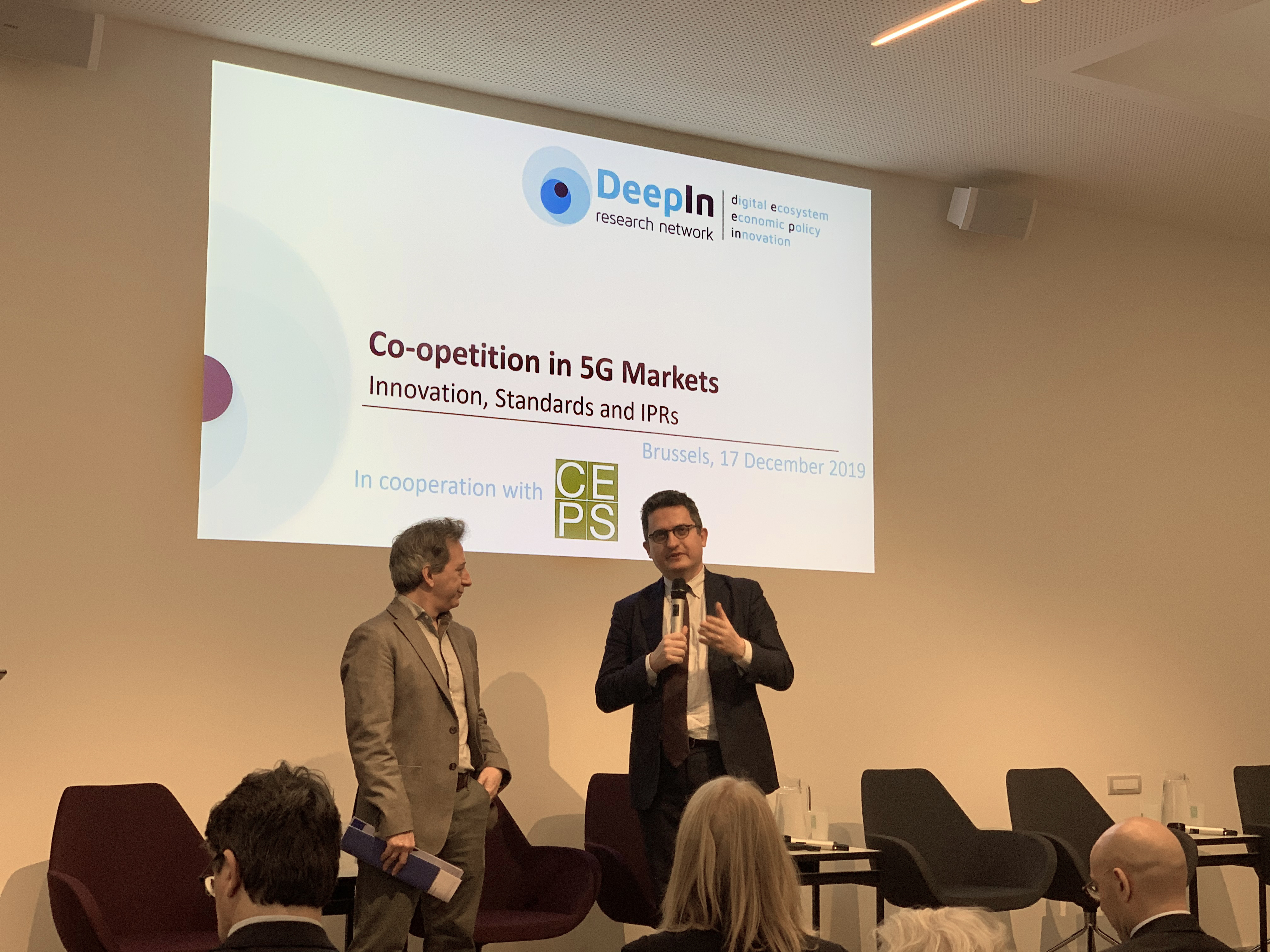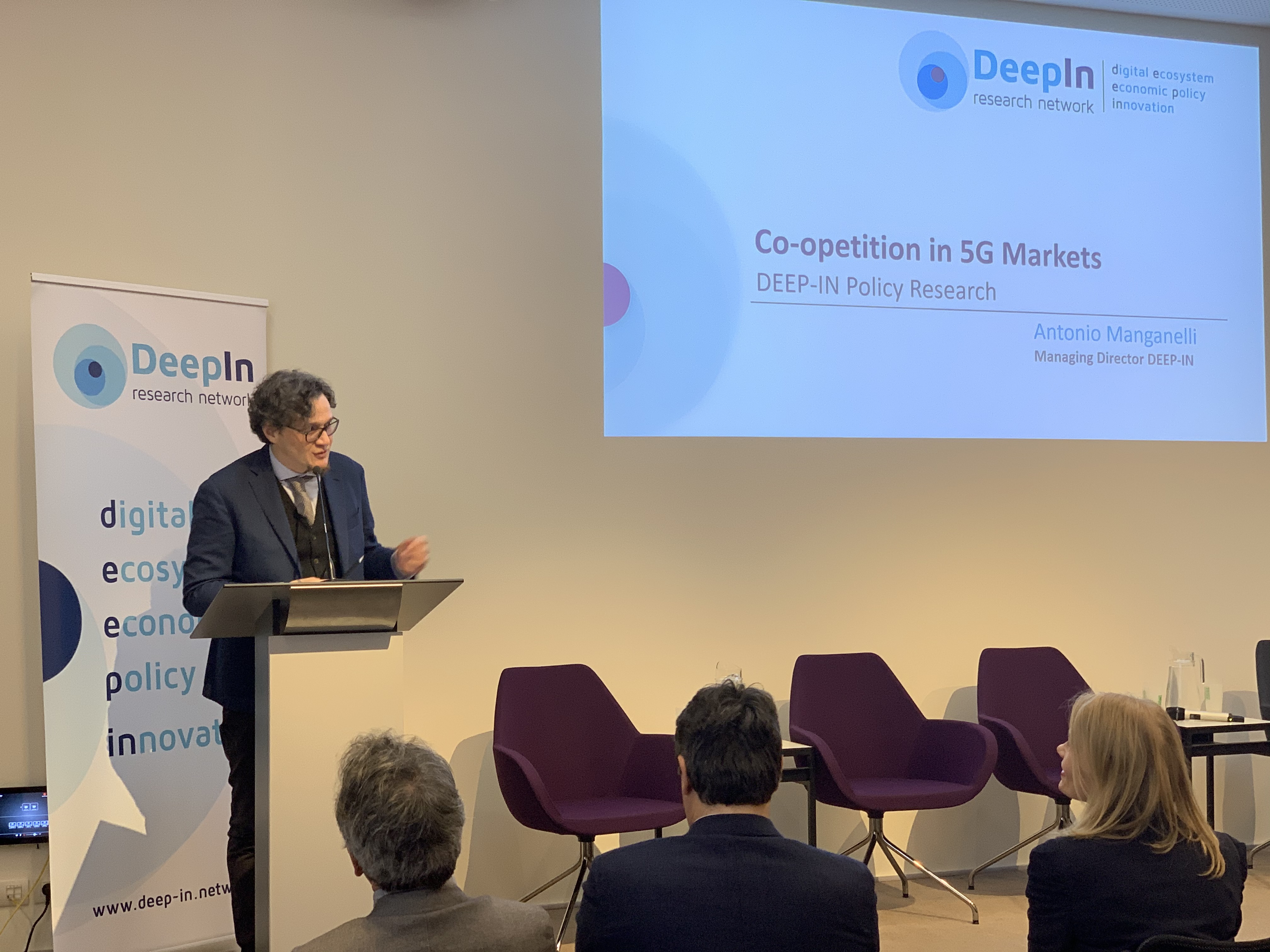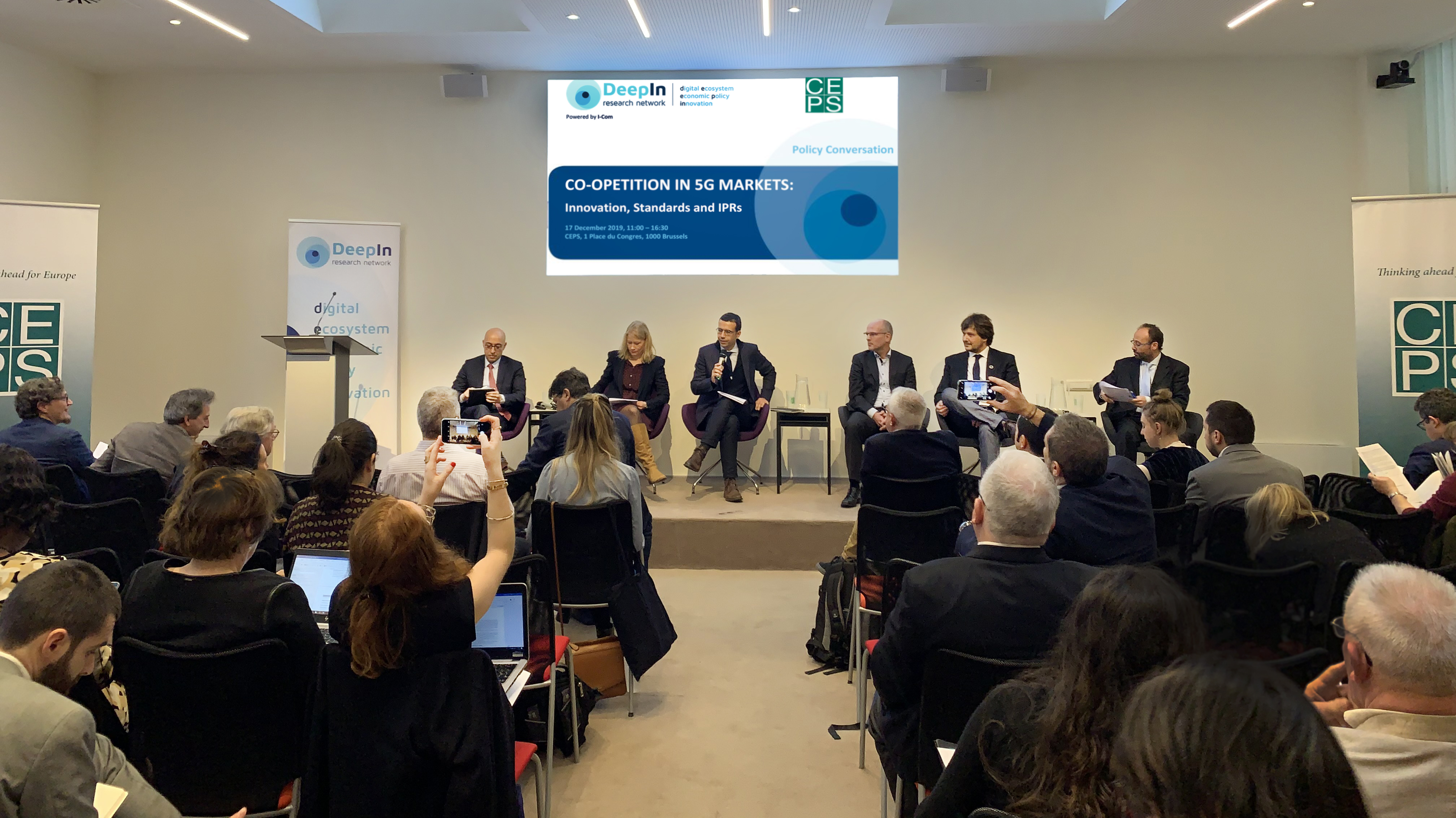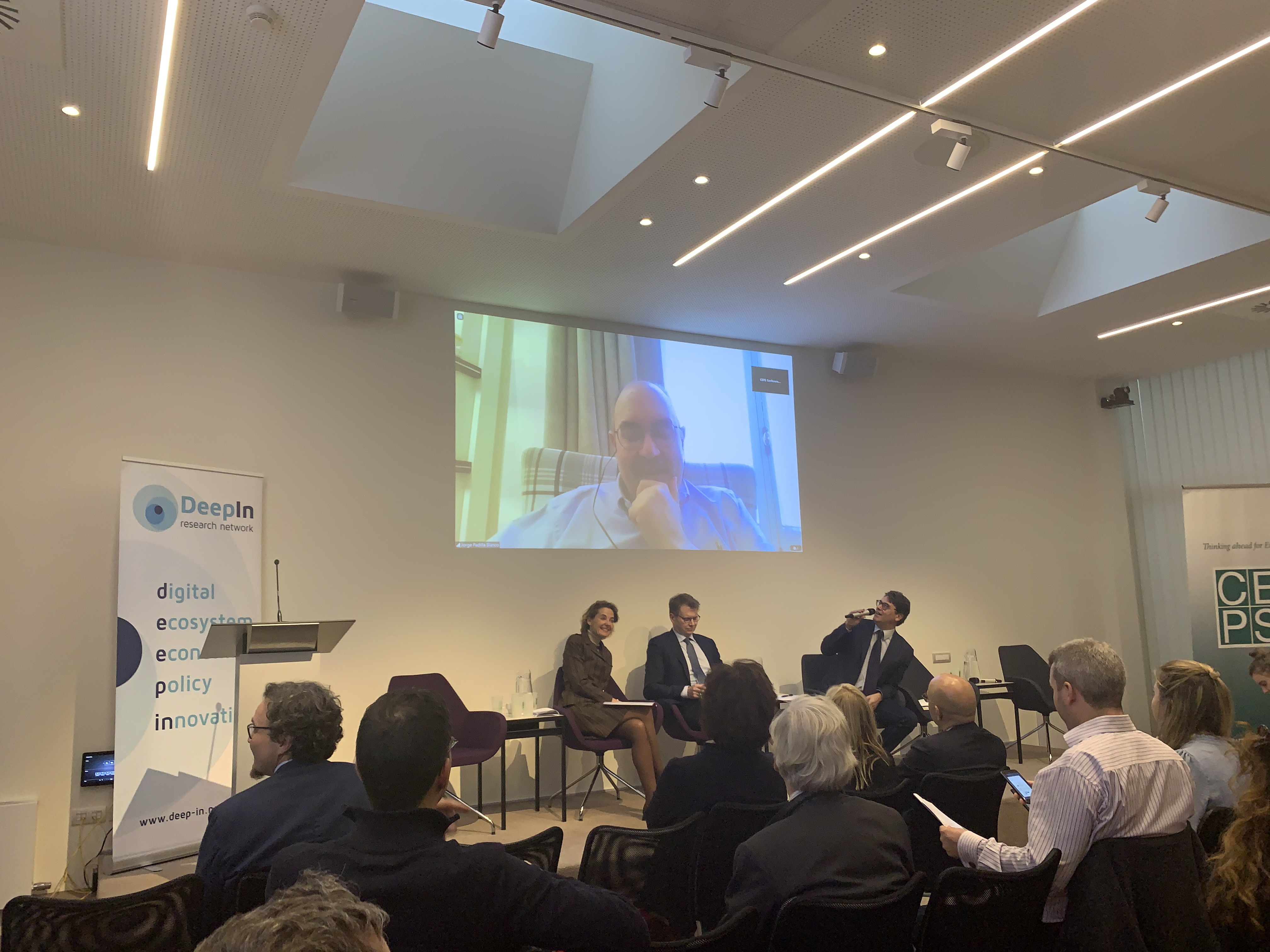CO-OPETITION IN 5G MARKETS: Innovation, Standards and IPRs
WHEN
11:15 – 16:30
December 17th 2019
WHERE
CEPS
1 Place du Congres
1000 Brussels
5G networks and services are going to craft the building block of future gigabit society: a momentous transformation of the digital and telecoms world. Today, ICT and ‘vertical’ companies are introducing new business models and investment strategies in order to respond to that transformation. Meanwhile, policy makers and regulators are seeking a new way to govern the complexity of 5G ecosystem without negatively affecting its incremental value from existing products and services.
In this perspective, in order to maximise social welfare and maintaining strong incentives towards innovations in ‘5G markets’, public bodies and companies are asked to encourage the development of standards, interoperability, harmonisation and maintaining an efficient ‘institutional and contractual’ design in the production and enforcement of IP licenses.
This workshop organized by Deep-IN Network in cooperation with CEPS will shade some lights on these issues.
The first session of the workshop will deal with policy and market strategies introducing new cooperation tools and coordination mechanisms in all segments of its horizontally and vertically extended value chain. This process is aimed to make ‘5G markets’ move toward a balanced framework (still to be defined) between cooperation and competition and thus enabling the so-called co-opetition in 5G markets.
The second session of the workshop will focus on Standard Developing Organisations (SDOs) and Standard Essential Patents (SEPs) which are essential in the 5G and IoT ecosystem. SDOs are supposed to play a key role in ensuring a smooth interplay between patents and standards. Indeed, innovation needs both sustainable and efficient standardisation process and a balanced licensing environment, also in order to address the risk of hold-up and hold-out opportunistic behaviours throughout the value chain.
Fair Reasonable And Non-Discriminatory (FRAND) conditions has often been considered a key to such a balance, and are increasingly used in other EU contexts (e.g., Data Economy and FinTech). Nevertheless, the hurdles underlying the economic and legal assessment of ‘what FRAND is’ has implied a massive litigation that has not tackle legal uncertainty because of an inconsistent bodies of case-law worldwide.





Simply wish to say your article is as astonishing. The clearness in your post is simply nice and i could assume you’re an expert on this subject. Fine with your permission allow me to grab your feed to keep updated with forthcoming post. Thanks a million and please carry on the rewarding work.| а
Keep up the excellent work and bringing in the crowd!